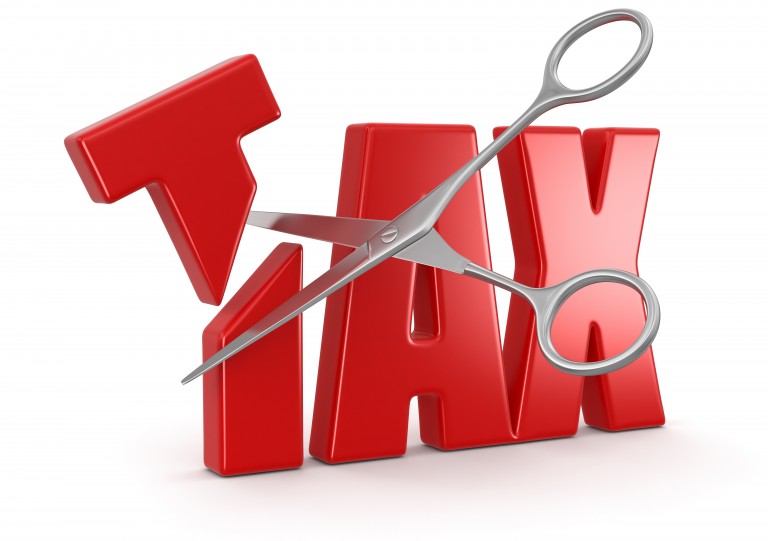Tax Rebate under Section 87A for FY 2020 – 21
Section 87A under the Income Tax Act is highlighted in the interim budget announced 2019-2020, which serves to reduce taxpayers’ tax debt. According to this income tax category, up to ₹ 5 Lakh annual income taxpayers are given a full tax rebate. In other words, we can that this section along with other sections makes some part of the earner’s income tax-free. This means that the maximum discount rate has been increased to ₹ 12,500 from ₹ 2,500. Therefore, if you pay income tax up to ₹ 12,500, then you do not have to pay it. However, in the case of income over ₹ 5 Lakh, the discount rate will be zero.
Eligibility Criteria for Claiming Income Tax Rebate Under Sec 87A for FY 2020 – 21
In terms of the budget announced FY 2020-21, the eligibility criteria for section tax under this section are as follows:
- The taxpayer must be a resident of India.
- Total taxpayer’s income should not exceed ₹ 5 Lakh per year.
- In addition, it should be noted that the tax rebate, in this case, applies to full tax before adding the health and education expenditure of 4%.
How the latest Section 87A limit will work?
| Net Income | Income Tax | Rebate As Per Sec 87 A | Tax Payable |
| Up to ₹ 3 Lakh | ₹ 2,500 | ₹ 2,500 | 0 |
| ₹ 4 Lakh | ₹ 7,500 | ₹ 7,500 | 0 |
| ₹ 5 Lakh | ₹ 12,500 | ₹ 12,500 | 0 |
| ₹ 5.50 Lakh | ₹ 22,500 | 0 | ₹ 22,500 |
| ₹ 1.20 Lakh | ₹ 1,72,500 | 0 | ₹ 1,72,500 |
Individuals earning up to ₹ 5 lakh are no longer expected to pay tax since they are eligible for a maximum tax refund of ₹12,500 under section 87A. Any income above ₹ 5 Lakh, however, is not eligible for a tax refund and such income holders are therefore expected to pay tax in compliance with the income tax slab percentage. the income tax valuation on the basis of varied income through complex assures singular taxation of the earners.
What if the tax is deducted already as TDS?
If the tax has already been withheld as tax-deductible at source(TDS), you will claim an income tax rebate by filing your tax return and you are not eligible to pay any tax if you make less than ₹ 5 Lakh a year.
How to claim the refund under Section 87A?
As per this section of the Income Tax Act, you can only seek compensation if the income is less than ₹ 5 Lakh and the tax obligation is greater than ₹ 2,000. Before incorporating education cess, such as secondary or higher education cess, the refund as per section 87a may be sought while filing the tax return.
FAQs
✅ What is Section 87A in income tax?
Section 87A was introduced under the Finance Act, 2013. However, it attracted attention when the provisional budget for 2019-2020 was announced. According to this section, the tax rebate has been increased to ₹ 12,500 from ₹ 2,500, for people earning up to L 5 Lakh under the income tax clause. Therefore, tax liability has been reduced. Contact Dialabank by dialling 9878981144 for further information regarding the same.
✅ How is the Section 87A rebate calculated?
The section 87A rebate is calculated based on the individual salary. For all people earning up to ₹ 5 Lakh, taxable debt has been deducted. Therefore, if you have been paying up to ₹ 12,500, then you do not need to pay taxes. However, any income in excess of ₹ 5 Lakh is liable for tax exemption.
✅ What is the rebate for AY 2020 21?
The maximum discount announced for AY 2020-21 is ₹ 12,500 in revenue up to ₹ 5 Lakh per year. this might change in the coming years.
✅ What is a relief for us 87A?
Section 87A in the Income Tax Act provides assistance to taxpayers who have been paying tax of up to, 500 12,500. According to this section, if your income reaches ₹ 12,500, you are no longer eligible for tax, depending on your income. This is because in terms of seconds 87a, tax payments are given to those earning up to ₹ 50,000 per annum.